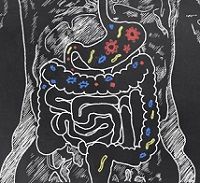Article
FMT Comes with Serious Adverse Events in 9.2% of Patients, Study Finds
Author(s):
Fecal Microbiota Transplant is being used to treat C. difficile infections, but it can cause complications and even death, a study found.

Fecal Microbiota Transplant (FMT) shows therapeutic potential for treating recurrent or refractory Clostridium difficile infections.
Reporting in PLOS One, a team reviewed databases to see how many adverse events and what types of such incidents have been reported with FMT.
Sinan Wang of the Department of Gastroenterology and Hepatology, General Hospital, Tianjin Medical University, Tianjin, China and colleagues looked at 7,562 articles about FMT and selected 50 of them for analyses.
In all there were 78 different kinds of adverse events reported, with an incidence rate of 28.5%. The rate for serious adverse events was 9.2%.
The most common was less serious: abdominal discomfort.
When FMT was delivered by the upper gastrointestinal route, 43.6% of patients had adverse events but when administered by the lower GI route only 17.7% had such events.
But serious adverse events were more common in the lower GI route (6.1%) versus the upper route (2.0%).
There were 44 types of serious adverse events, ranging from infection (2.5%) relapse of inflammatory bowel disease (0.6%), C. difficile infection (0.9%), and death (3.5%).
“Both adverse events and serious adverse events are not rare and should be carefully monitored throughout FMT,” the team concluded. They also called for “high quality randomized control trials” to better analyze the prevalence of adverse events seen with FMT."
Further Reading:
video:http://www.hcplive.com/medical-news/fecal-microbiota-transplants-sends-ulcerative-colitis-patients-to-remissionhttp://www.hcplive.com/medical-news/fecal-microbiota-transplants-sends-ulcerative-colitis-patients-to-remission





